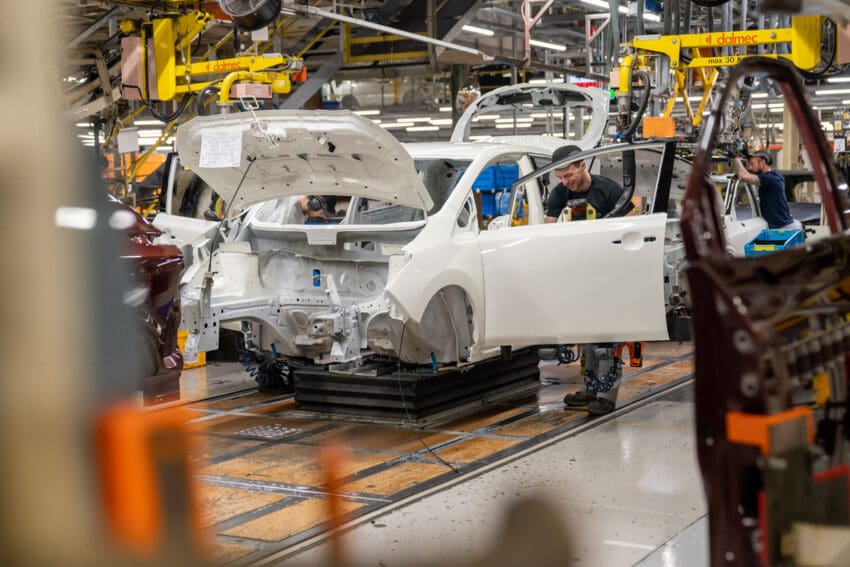Car makers pile pressure on Chancellor to introduced EV incentives
The UK car industry has urged Chancellor Rachel Reeve to introduce a wave of new incentives to help stimulate the electric car segment.
EVs recorded their best ever monthly volumes in September, with 56,300 units registered, but key industry figures have warned that the ZEV mandate is putting unsustainable pressure on manufacturers.
The bosses of 12 leading car makers, including BMW, Toyota, Ford, Honda and Kia, wrote to the Chancellor on Friday asking her to step in with measures to help boost private sales of EVs.
They warn that without support the industry would miss the mandated targets and face huge fines, leading to cuts in investment and potential job losses.
Manufacturers are required to ensure 22% of their sales are zero-emission vehicles by the end of 2024, with the figure rising each year and reaching 80% in 2030 and 100% in 2035.
The letter notes: “Mandates don’t make markets and consumers respond to carrots not sticks. Unfortunately, the private consumer has no fiscal incentive to switch and so our ZEV market looks set to miss its target. The consequences of this will not just be environmental but economic.”
September’s figures represent a 24% year-on-year increase in EV registrations and mean they accounted for 20.5% of all new car sales last month. However, the SMMT said this was due to ‘unprecedented discounting’ and warned that by the end of 2024 EVs will account for around 18.5% of the market – well down on the 22% demanded by the mandate.
The figures also showed that fleet customers still make up the vast majority of EV buyers. Fleet sales accounted for 76% of EV registrations in September, although private sales were up 3.6%, possibly due to manufacturer discounts.
The letter argues that the success of fleet sales – driven by fiscal incentives such as company car tax and salary sacrifice – prove that incentives work.
The letter, also signed by Mike Hawes, chief executive of the Society of Motor Manufacturers and Traders, calls for a 50% VAT reduction on new electric cars for the next three years. It claims this would put two million more EVs on the road by 2028.
It also suggests rethinking plans to tax EVs in the same way as ICE cars and, in particular, scrapping the expensive car supplement, which is due to be applied to all EVs over £40,000 from next April.
Other measures include a repeat of the call to cut VAT on public charging from 20% to 5% – in line with domestic rates – and extending grants for plug-in vans and taxis, both of which are due to end in March 2025.
While some brands, including Peugeot, are on target to meet the 22% target through new vehicle sales, others face having to buy credits from competitor brands or paying fines of £15,000 per vehicle.
Several manufacturers have announced major discounts on EVs in recent months in a bid to stimulate private sales. Mazda, Honda, Renault and, most recently, Vauxhall have all cut thousands of pounds from the price of key electric models.






